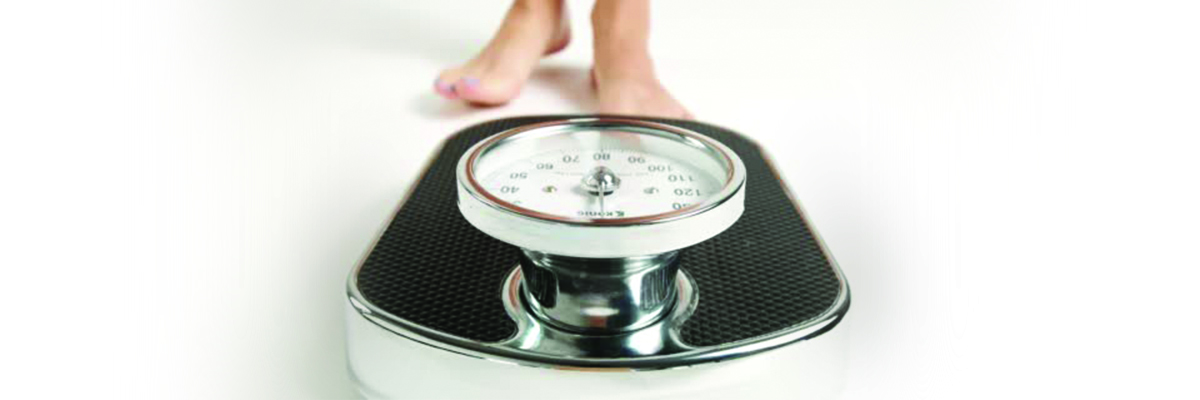When the Scale Says You Gained 5lbs.
What is the scale actually telling us?
Before we worry about numbers, let’s talk about what most people actually care about – avoiding body fat gains.
Excess body fat is bad. That much is obvious. Most of us who talk about trying to lose weight really mean dropping body fat.
Body fat is responsible for keeping us warm, protecting our vital organs, and plays a role in the inflammatory response. It also has a hand in producing a number of hormones as well as how we metabolize glucose.
When we think we’ve gained weight because of the scale, we usually think we’ve gained more of this jiggly tissue. We couldn’t be more wrong.
 With that in mind – back to your bonding time with Ben and Jerry. You three had a great time. It may have been the best night of the week if we’re being honest.
With that in mind – back to your bonding time with Ben and Jerry. You three had a great time. It may have been the best night of the week if we’re being honest.
All your hard work undone, right? You had been doing so well. You were eating lots of veggies, exercising, drinking water. Is one night of wild ice cream abandon all it takes to undo your hard work? It’s easy to think that when you wake up the next morning and see the scale has jumped up by a good 3lbs.
No. You might have gained weight on the scale, but you haven’t gained fat. Here’s why.
We have a couple of sources of energy: fat and glycogen. We store carbohydrates in the form of glycogen. Our daily activities use a mixture of fat and glycogen for fuel. As it relates to exercise, the more intense the activity the more glycogen you’re using.
Our bodies can’t store near as much glycogen as fat. We’re limited to about 2,000 calories or 500g worth. Now, this does change the more muscular you become and the more you train, but this is a pretty decent rule of thumb.
When trying to lose weight, a lot of people restrict calories by focusing on a single macronutrient. This often comes in the form of cutting carbs. Not because carbs are inherently bad, that’s just a function of most diets.
As a result, your glycogen levels become depleted. Add exercise to the mix and those same levels will dip even lower.
Because of this, when Ben & Jerry come calling with their sugary, carb-laden singing, it’s pretty hard to resist.
Why? Your body, being in a glycogen depleted state, gladly accepted this generous offering and went to refilling your muscles and liver with glycogen. Physically, you’re probably craving more carbs, thanks to restriction. Psychologically, a tryst with Ben & Jerry has probably been restricted, so you’re primed to crave it even more.
What does this have to do with the number on the scale in the morning?
Everything. For every gram of glycogen we store, we store about 3-4g of water along with it. Muscles themselves are about 70% water.
So, that means if you take in about 100g of carbs in one meal, or the equivalent of a tub of Ben & Jerry’s, you’ve also taken in 400g of water.
That means we’ve stored nearly 1 pound of water alongside those carbs. It’s not a bad thing. Our bodies are just hardwired to do it.
On top of that, most people won’t stop at just 100g of carbs. In fact, 100g is not a big number of carbs, especially in the context of a really big cheat meal or if you’ve been feeling deprived and really go hard on your binge.
Hit 200g of carbs, and you’ve now gained 2.5lbs in just water and glycogen. Never mind the fact that you’ll also be storing excess water thanks to eating more sodium.
Back to fat cells, remember how they’re 90% triglycerides? The other 10% was water. Fat cells don’t stay full all the time, just like our glycogen stores. They’re in a constant process of being depleted and replenished. This gives the body another place to store more water, and since we have billions, with a B, of fat cells, that’s a lot of water to be stored.
One last thing that can affect the scale.
We often neglect the fact that we poop. Pooping is a normal human function. It’s a great time to cruise the internet or crush some candies. The more important thing, though, is that poop is a product of digestion after making it’s way through the entire gastrointestinal tract.
If you don’t remember from science class, the GI tract is pretty freaking long. About 30 feet from mouth to where the sun don’t shine.
That’s a lot of places to store poop, usually about 5 lbs on average. Anytime we’ve eaten a meal that is a shock to our digestive system, like what happened when you got freaky with B&J the other night, that adds stress to our GI tract. Which in turn means we probably have more stored there than we normally do.
The scale is a long-term tool
The scale is nothing more than our relationship to gravity. It’s merely a number. On some days that number is going to be higher than it was yesterday. In fact, some days it’s going to be much higher later in the day than it was earlier in the day. It’s a dynamic process.
And remember, while the scale can be deceiving, it is also a great long-term indicator of progress. It’s incredibly useful in identifying trends over time. And that’s how we like to use it.
If you’re weighing yourself, we suggest you weigh yourself daily. There will be days where it’s higher, and those days might even fall in a row sometimes. If you’re dieting properly though, the total trend should be downward.
Weighing daily also allows you to put those crazy days – where it’s 5lbs higher – into perspective. If you can look back at previous instances where that’s happened and then seen the number on the scale come back to normal, you know that that’s likely the case this time as well.
What’s important to remember is that it is only one way to measure progress. Progress should be measured using a three-pronged approach. Like your own trident of fat loss success.
What should your trident of fat loss success be?
- The scale
- Body measurements
- Non-scale victories, i.e. clothes fitting and how you look in pictures
These can provide an illuminating look at what’s really going on and put into perspective that just because the scale is higher doesn’t mean you’ve actually gained fat. No matter how dirty you’re feeling the morning after getting it on with Ben & Jerry.



